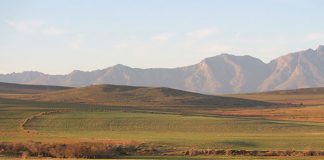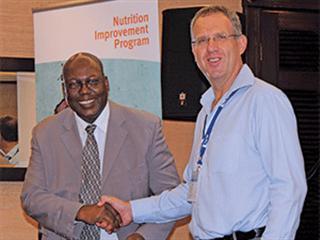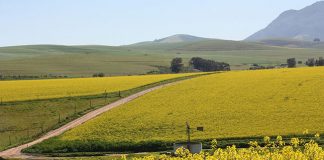Shabangu made this statement to the media in parliament after Cabinet announced its decision to lift the moratorium in early September. The decision was made despite public outcry and threatened legal action by environmental groups. She said that Cabinet lifted the moratorium after reviewing a report on fracking (hydraulic fracturing) in the Karoo basin.
The report was compiled by a special task team of representatives from the Departments of Water and Environmental Affairs, Science and Technology, Energy and Mineral Resources, the Water Research Commission, SKA (Square Kilometre Array) South Africa, Eskom and the Petroleum Agency of South Africa.
Responding to a question from Farmer’s Weekly about why the farming sector was not represented on the task team the minister replied, “We did not know at that stage (when the task team was appointed) if farmers would be affected.” According to Agri SA president Johannes Möller, the farming sector should have been included on the task team. “For greater transparency and integrity of the process, Agri SA believes that this report should have been available for perusal and commentary prior to Cabinet making this decision.
“Agri SA was not consulted regarding the activities or findings of this task group,” said Möller. Agri SA was one of the groups that appealed to the minister to place a moratorium on shale-gas development, because of concerns over the possibility of groundwater pollution. “Agri SA also asked that the results of international research in this regard be awaited and considered. According to information at our disposal, this work has not yet been completed,” said Möller.
Jonathan Deal, chairperson of the anti-fracking lobbyists Treasure the Karoo Action Group (TKAG), said he was glad to hear that government planned to embark on further public consultation, but added that he was perplexed about Cabinet’s decision to lift the moratorium before engaging with the public.
Like Agri SA, TKAG was disappointed at their exclusion from the information gathering process for the report. Deal said the task team operated in “total secrecy and consistently refused to make its composition or findings public.” During the parliamentary media briefing, Shabangu responded to a question from Deal saying that public consultation could only follow after Cabinet had reached a decision on the matter and that Cabinet had to wait for the report before it could reach a decision.
“We had to go to Cabinet first and on the basis of that decision our next immediate step will be to engage with the public,” said Shabangu. She said ongoing research into hydraulic fracturing must be conducted to enhance scientific knowledge of the method and emphasised that the lifting of the moratorium was a conditional approval for exploration, but in the event of unacceptable outcomes, the process could be halted.
According to the seven main recommendations in the task team’s report only “normal exploration” will initially be allowed which means that applicants, such as Shell, can start drilling, but this did not mean they could start the fracking process. Shabangu said five companies had applied for licences, but she could not say how long it would be before these licences were granted. Applicants could still decide to retract their applications, she said.












